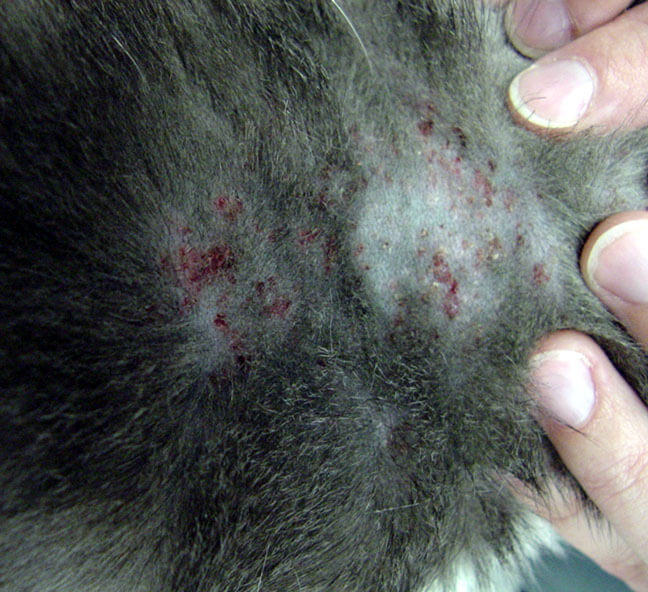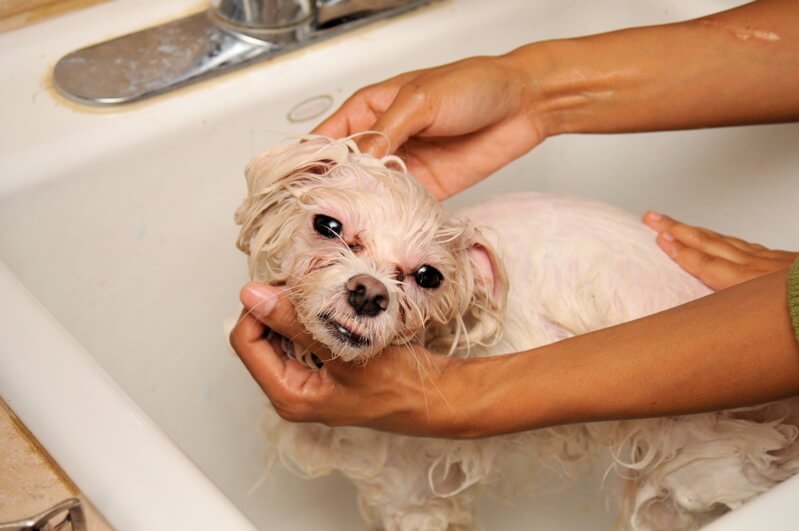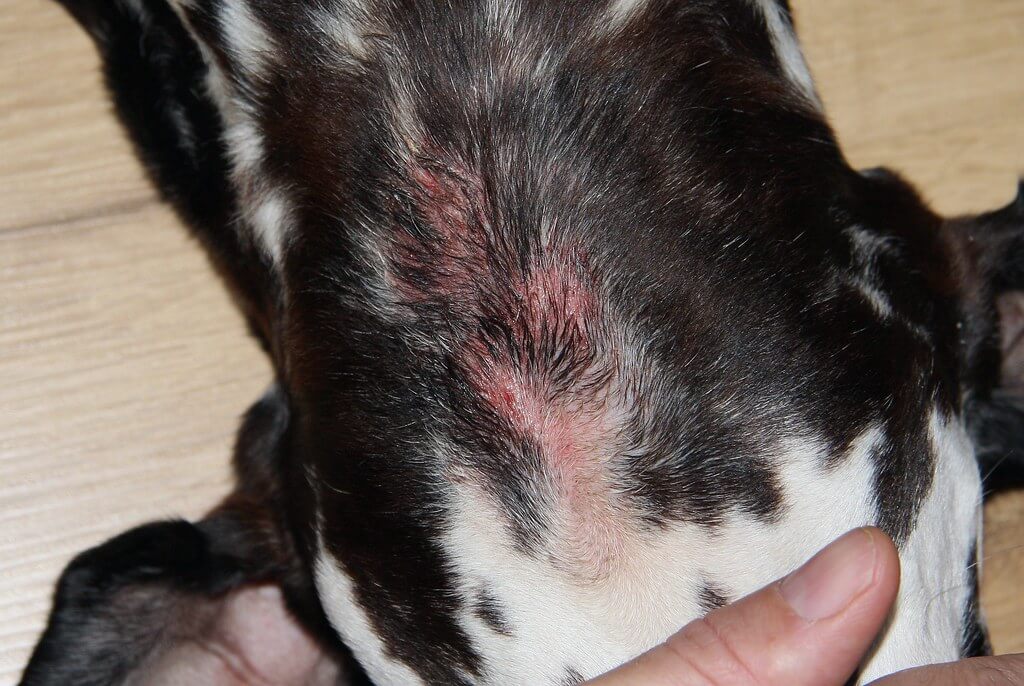Boxers Allergies and Skin Allergy Guide
Boxers are a popular breed known for their playful and energetic nature. However, like many dogs, Boxers can suffer from various allergies, often leading to uncomfortable skin conditions. Recognizing and resolving these problems is essential for their overall well-being.
In this Boxers Allergies and Skin Allergy Guide, we will explore the common allergies that affect Boxers, including food allergies, environmental triggers, and contact allergies. These conditions can manifest as itching, redness, and other skin irritations, significantly impacting your Boxer’s quality of life.
Addressing skin allergies in Boxers is essential for preventing further health complications and ensuring your pet remains happy and healthy. Recognizing the symptoms early and implementing effective treatment strategies can alleviate discomfort and prevent serious health issues.
With the help of this manual, you will be able to effectively manage and treat Boxer’s allergies, helping your furry friend lead a more comfortable and enjoyable life.
Understanding boxers allergies and skin allergy guide
What are Allergies?

Allergies result from the immune system overreacting to certain chemicals that are generally harmless to most people or animals. These substances, known as allergens, provoke an immune response that can lead to various symptoms. Essentially, the immune system mistakenly identifies a non-threatening substance as a danger, causing an exaggerated response.
This reaction may appear in several ways, such as inflammation, itching, and other physical symptoms. For Boxers, this means that their immune system might react strongly to certain foods, environmental factors, or materials, leading to discomfort and health issues.
How Allergies Affect Boxers Specifically
Boxers are prone to certain allergies that may impact their general health and standard of living. When Boxers are exposed to allergens, their immune system triggers inflammatory responses that impact their skin and sometimes other parts of their body.
The most common signs of allergies in Boxers include itching, redness, rashes, and infections. Persistent scratching and biting can lead to more severe skin conditions and infections, making it important to identify and manage allergies early.
Common Allergies in Boxers
Food Allergies: Food allergies occur when a Boxer’s Some foods cause negative reactions in their immune system. This reaction can cause itchy skin, ear infections, vomiting, and diarrhea. Common food allergens for Boxers include proteins like poultry, meat, and cereals like wheat and corn.
Identifying food allergies often involves an elimination diet, where potential allergens are removed and reintroduced to determine which ingredients cause a reaction.
Environmental Allergies: Boxers can be sensitive to various environmental factors. Common environmental allergens include pollen, dust mites, and mold. Seasonal changes can exacerbate these allergies, with symptoms such as skin irritations, runny eyes, and sneezing becoming more noticeable during certain times of the year.
Managing environmental allergies often involves minimizing exposure to these allergens, such as keeping the home clean and using air purifiers.
Contact Allergies: These allergies arise when a Boxer’s skin directly contacts certain substances. Common triggers include chemicals (like those found in cleaning products or lawn fertilizers), plants (such as poison ivy or certain weeds), and materials (like specific types of bedding or carpets).
Symptoms of contact allergies can include localized skin rashes, redness, and swelling. Identifying and avoiding contact allergens is crucial for preventing and managing these reactions.
Understanding the various types of allergies that affect Boxers helps diagnose and treat them effectively. By recognizing the symptoms and identifying the allergens, you can improve your Boxer’s comfort and health.
Symptoms of Skin Allergies in Boxers

Common Symptoms
Scratching and Itching: Among the most obvious symptoms of skin allergies in Boxers is itching. Your Boxer may scratch frequently, using their paws or rubbing against objects. This can lead to skin damage and further irritation.
Red, Inflamed Skin:
Allergies often cause the skin to become red and inflamed. You might notice areas of your Boxer’s skin looking irritated or sore. This redness usually appears in patches and can be accompanied by swelling.
Hot Spots and Skin Infections:
Hot spots are areas of the skin that become moist, inflamed, and infected due to constant licking or scratching. If not treated promptly, these spots can develop into serious skin infections.
Excessive Licking or Biting:
Allergic reactions can lead to excessive licking or biting of the affected areas. Your Boxer might focus on specific spots, producing more irritability and perhaps resulting in subsequent infections.
How to Identify Skin Allergies

Observational Signs and Behavioral Changes:
Pay close attention to any changes in your Boxer’s behavior. If you notice them scratching more than usual, licking their paws, or showing discomfort, these can be signs of a skin allergy.Observing where and when these symptoms occur can help identify potential triggers.
Differences Between Skin Allergies and Other Skin Conditions:
It’s important to distinguish skin allergies from other skin conditions. Allergies typically cause redness, itching, and inflammation, while other conditions, like infections or parasites, may present differently.
For instance, parasites often cause more localized symptoms, and infections may have additional signs like pus or unpleasant odor.
Identifying and understanding these symptoms helps manage and treat your Boxer’s skin allergies effectively. If you suspect your Boxer has a skin allergy, consulting a veterinarian is crucial for proper diagnosis and treatment.
Diagnosing Boxers’ Allergies

Veterinary Diagnosis
Importance of Consulting a Vet: Should you have suspicions your Boxer has allergies, it’s crucial to consult a veterinarian. A vet can provide a professional diagnosis and help you determine the best course of action. They have the expertise and tools needed to accurately identify the cause of your Boxer’s symptoms and recommend appropriate treatments.
Diagnostic Tests: Your vet may suggest several diagnostic tests to pinpoint the cause of the allergies:
- Skin Tests: These tests help identify specific allergens by applying small substances to your Boxer’s skin and observing the reaction.
- Blood Tests: Blood tests can detect allergic reactions and measure your Boxer’s response to different allergens.
- Elimination Diets: This involves feeding your Boxer a special diet with limited ingredients to identify food-related allergies. Foods are gradually reintroduced to see if they cause any reactions.
At-Home Observations
Keeping a Symptom Diary: Maintaining a symptom diary can be very helpful in diagnosing allergies. Record when symptoms appear, their severity, and any changes in your Boxer’s environment or diet. This information can assist your vet in making a more accurate diagnosis.
Identifying Patterns and Potential Triggers: Look for patterns in your Boxer’s symptoms. For instance, if symptoms worsen during certain seasons or after specific activities, these could be clues to the underlying cause. Identifying potential triggers—such as particular foods, plants, or chemicals—can help narrow down the possible causes of your Boxer’s allergies.
By combining veterinary expertise with careful at-home observations, you can effectively diagnose and manage your Boxer’s allergies, ensuring they receive the appropriate care and relief.
Treatment and Management of Boxers’ Allergies
Dietary Management
Hypoallergenic Diets and Limited Ingredient Diets: Hypoallergenic diets are created specifically to lessen allergic responses in Boxers. These diets use ingredients less likely to cause allergies, such as novel proteins (e.g., duck or venison) and easily digestible carbohydrates.
Limited-ingredient diets focus on key ingredients to help identify and avoid allergens, making it easier to pinpoint food sensitivities and manage them effectively.
Supplements and Their Benefits: Certain supplements can help manage allergies and support your Boxer’s skin health. For instance, fish contains omega-3 fatty acids (oil), which can reduce inflammation and improve skin condition.
Probiotics can enhance gut health and boost the immune system, potentially reducing allergic reactions. Always consult with your vet before starting any new supplements.
Environmental Management
Reducing Exposure to Common Allergens: To manage environmental allergies, minimizing your Boxer’s exposure to common allergens is important.
This might involve keeping them away from areas with high pollen or dust and avoiding walks during high pollen times. Regularly cleaning your home to remove dust, mites, and mold can also help reduce allergic reactions.
Creating an Allergy-Friendly Living Space: Make your home allergy-friendly by using air purifiers and dehumidifiers to reduce airborne allergens.
Wash your Boxer’s bedding and toys frequently in hypoallergenic detergents. Keeping your living space clean and free of irritants will help manage and prevent allergy symptoms.
Medical Treatments
Medications: Your vet may prescribe antihistamines to reduce itching and inflammation. Corticosteroids can be used to control inflammation in more severe allergic reactions. Other medications, such as immunotherapy (allergy shots), may be recommended for long-term management.
Topical Treatments: Topical treatments like shampoos and ointments can immediately relieve your Boxer’s skin. Medicated shampoos can help reduce itching and inflammation, while soothing ointments can treat localized rashes and irritations. Select items made especially for dogs and speak with your vet for recommendations.
Managing your Boxer’s allergies involves dietary changes, environmental adjustments, and medical treatments. Addressing these areas can help keep your Boxer comfortable and improve their quality of life.
Preventive Measures
Regular Check-Ups
Importance of Routine Vet Visits: Routine vet visits are crucial for maintaining your Boxer’s health and managing allergies. Veterinary examinations regularly enable your Boxer’s overall health and catch any signs of allergies early.
Consistent vet visits can help adjust treatment plans as needed and prevent potential health issues from becoming more serious.
Monitoring for Early Signs of Allergies: Watch your Boxer closely for any early signs of allergies, such as itching, redness, or changes in behavior.
Noticing these symptoms early can help you address them promptly and avoid more severe allergic reactions. Tracking and discussing changes with your vet can ensure your Boxer receives timely care.
Grooming and Hygiene
Regular Bathing and Brushing: Regular bathing and brushing are important for keeping your Boxer’s skin clean and reducing allergens. Bathing your Boxer with a gentle, hypoallergenic shampoo can help remove allergens from their coat. Frequent brushing aids in removing flyaways and dander, which can also reduce allergy symptoms.
Using Hypoallergenic Grooming Products: Choose hypoallergenic grooming products to minimize skin irritation. These products are formulated to be gentle on sensitive skin and help prevent allergic reactions. Look for shampoos, conditioners, and wipes specifically labeled hypoallergenic to ensure they are safe for your Boxer.
By incorporating these preventive measures into your routine, you can help manage your Boxer’s allergies more effectively and keep them healthy and comfortable. Regular vet visits and proper grooming are key in preventing and alleviating allergy symptoms.
Alternative Therapies and Natural Remedies

Herbal and Homeopathic Remedies
Safe Natural Treatments for Managing Allergies: Herbal and homeopathic remedies offer alternative approaches to managing allergies in Boxers. These natural treatments can sometimes help alleviate symptoms and support overall health.
Herbal remedies such as chamomile and licorice root are known for their anti-inflammatory properties and can help soothe irritated skin. Homeopathic treatments might include remedies like Apis mellifica for swelling or Rhus toxicodendron for itching.
Always consult a veterinarian before starting any new herbal or homeopathic treatments to ensure they are safe and appropriate for your Boxer.
Probiotics and Omega Fatty Acids
Benefits for Skin Health and Overall Immunity: Probiotics and omega fatty acids are beneficial supplements that support your Boxer’s health and help manage allergies. Probiotics improve gut health by balancing the digestive system, enhancing overall immune function, and potentially reducing allergic reactions.
Omega fatty acids in fish oil help reduce inflammation and improve skin health, making the skin less prone to allergic reactions. Including these supplements in your Boxer’s diet can promote better skin condition and overall well-being.
Incorporating these alternative therapies and natural remedies can provide additional support in managing your Boxer’s allergies, complement conventional treatments, and promote a healthier lifestyle.
When to Seek Professional Help
Recognizing Severe Reactions
Signs That Require Immediate Veterinary Attention: If your Boxer reacts severely to allergens, seeking immediate veterinary help is crucial. These signs include intense itching, swelling, difficulty breathing, or severe skin redness.
Additionally, if your Boxer has a swollen face or throat, vomits excessively, or shows signs of anaphylaxis (a serious allergic reaction), get to the vet immediately. These signs may point to a dangerous ailment that needs prompt treatment.
Specialized Care
Consulting Dermatologists or Allergists for Advanced Cases: Consulting a specialist such as a veterinary dermatologist or allergist might be necessary for complex or severe allergy cases. These specialists have the advanced knowledge and tools to handle difficult allergy cases.
They can conduct in-depth tests, offer specialized treatments, and provide tailored advice to manage your Boxer’s allergies more effectively. Specialized care can significantly improve your Boxer’s health and comfort when standard treatments aren’t enough.
Understanding when to get expert assistance guarantees that your Boxer receives the best care, particularly in severe or challenging allergy cases. Prompt and specialized treatment can greatly improve your Boxer’s quality of life.
Conclusion
Recap of the Key Points About Boxers’ Allergies & Skin Allergy Guide
In this Boxers Allergies and Skin Allergy Guide, we’ve covered essential information to help you manage and understand your Boxer’s allergies. We discussed the common types of allergies Boxers experience, including food, environmental, and contact allergies.
We also explored symptoms, how to diagnose allergies and various treatment and management strategies. Understanding these points is crucial for keeping your Boxer healthy and comfortable.
Encouragement to Monitor and Address Allergies Proactively
It’s important to monitor your Boxer closely for any signs of allergies and address them proactively. Early detection and treatment can prevent symptoms from worsening and improve your Boxer’s quality of life. Regular vet visits, proper grooming, and observing your Boxer’s behavior changes can help you avoid potential issues.
Final Tips for Maintaining Your Boxer’s Health and Comfort
To maintain your Boxer’s health and comfort, follow preventive measures like check-ups and a good grooming routine. Utilize alternative therapies and natural remedies as needed, and seek professional help if symptoms are severe or persistent. You can help keep your Boxer healthy by staying vigilant and proactive.
YOU MAY ALSO LIKE:
What is Chicken Meal in Dog Food
What is The Best Meat for Dog Food
Is Blue Buffalo Good Dog Food
Complete Guide to How Much Fresh Food to Feed a Dog
How Much Food for 60 lb Dog
How much Cesar Dog Food to Feed
How good is blue buffalo dog food
How Expensive is Farmer’s Dog Food
How Long is Canned Dog Food Good for After Opened
How Long Does a Bag of Dog Food Last
How Much Does Sundays Dog Food Cost
How to choose the best dog food for Huskies
How Much Does Cup of Dog Food Weigh
How to Treat Dog Food Poisoning at Home
How Much is Sunday’s Dog Food?
How Much is Ollie Dog Food in a Month?
How to Choose Dog Food
How Much Pumpkin to Add to Dog Food
How Much Does Farmers Dog Food Cost?
How Long Can Wet Dog Food Sit Out?
How to Soften Dog Food
How to Keep Dogs Out of Cat Food
How to Give Dog Pills Without Food
How to Get my Dog to Eat Dry Food
How to Keep Ants Out of Dog Food
How Much Does Dog Food Cost
How Long to Soak Dog Food
How Much Homemade Dog Food to Feed
How Much Wet Food to Feed a Dog
How to Transition Dog Food
How to Stop Food Aggression in Dogs Towards Other Dogs
How many cups of food should I feed my dog?
How to Stop Food Aggression in Dogs
How Many Cups in a Pound of Dog Food
How Long Does it Take a Dog to Digest Food
Why is My Dog Always Hungry
How Much Protein is in Dog Food?
How to Make Dog Food
how long to feed dog puppy food
What is The Cost to Make Homemade Dog Food?
How to Make Homemade Raw Dog Food
How to Make Homemade Dry Dog Food
How to Prepare Dog Food at Home for Senior Dogs
How to Train a Dog That is Not Food-Motivated
How Much Food Should I Feed
How To Store Dog Food
How Much Time Can a Dog Survive Without Consuming Water
How Long Can a Dog Survive Without Food?

